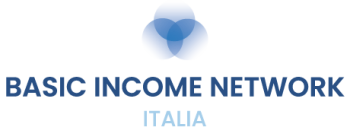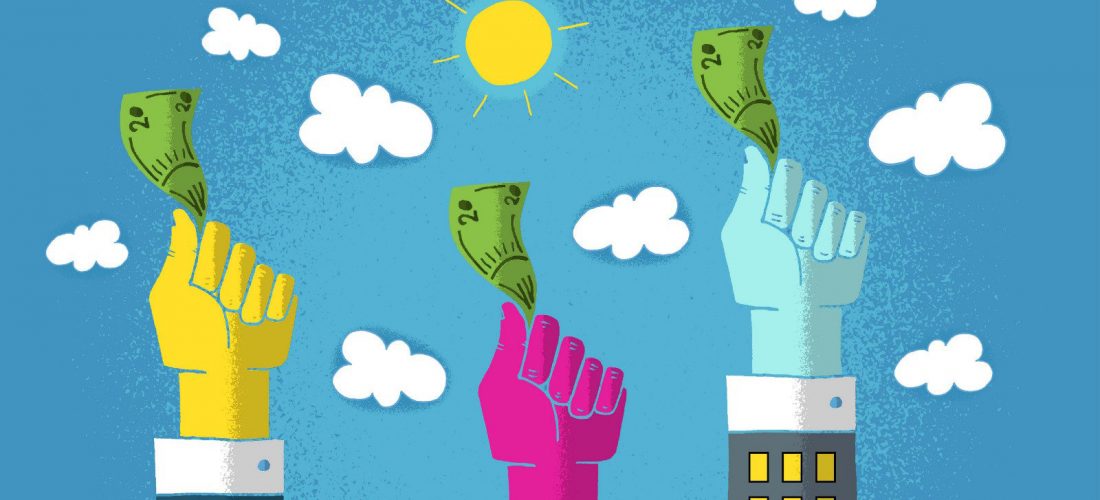This year, we mark the 50th anniversary of Rev. Dr. Martin Luther King Jr.’s famous “I Have a Dream speech at the March on Washington on Aug. 28, 1963. But we are sobered by the fact that 46 million U.S. citizens are living in poverty and that we have become two Americas — one for the rich and one for the rest of us.
Dr. King had a solution to poverty and to the bleak economic conditions faced by many Americans today. “I am now convinced that the simplest solution to poverty is to abolish it directly by a new widely discussed measure: the guaranteed income,” he wrote in his 1967 book, Where Do We Go From Here: Chaos or Community? “A host of psychological changes inevitably will result from widespread economic security.”
In 1969, a Presidential Commission recommended, by a vote of 22-0, that the United States adopt a guaranteed annual income, with no mandatory work requirements, for all citizens in need. The report was buried and forgotten, even though the National Council of Churches, by a vote of 107-1, agreed. So did the Kerner Commission, the California Democratic Council, the Republican Ripon Society, and the 1972 Democratic Party platform.
Fast forward 50 years and the concept of a guaranteed income — or Basic Income Guarantee — is not even being discussed much anymore. But it remains, as the late economist Milton Friedman always maintained, the most practical and sensible way to end poverty in America and provide economic security to all Americans.
Today we have more than 14 million Americans unemployed with no evidence to back up the claim that we can create jobs for everyone who wants one. Machines are doing work people used to do. Jobs are not coming back. Some families are six months away from poverty.
To rely on jobs and economic growth does not work. Job- creation is a completely wrong approach because the world doesn’t need everyone to have a job in order to produce what is needed. We need to rethink the concept of having a job. When we say we need more jobs, what we really mean is we need more money to live on.
Today there are more than 300 income-tested federal social programs costing more than $400 billion a year. Much of that money goes for administrative expenses, not to the needy.
Charles Murray, conservative author whose 1984 book “Losing Ground” claimed that welfare was doing more harm than good, now agrees with Dr. King’s approach. Murray calls for giving an annual cash grant of $10,000 — with no work requirement — to every adult over age 21.
“America’s population is wealthier than any in history,” Murray writes in his book “In Our Hands.” “Every year, the American government redistributes more than a trillion dollars of that wealth to provide for retirements, health care, and the alleviation of poverty. We still have millions of people without comfortable retirements, without adequate health care, and living in poverty. Only a government can spend so much money so ineffectively. The solution is to give the money to the people.”
Indeed, the state of Alaska has given an annual cash grant to its people for the past 30 years of between $800 and $2000. There are no work requirements. The grant has reduced poverty and the inequality of income in Alaska. The program is so popular that an attempt to kill it was defeated by a 4-1 majority.
The U.S. is a wealthy nation. Our net worth is $58 trillion. That’s an average of $185,000 for each man, woman, and child in the country. A basic income guarantee would establish economic security as a universal right. It will give all of us the assurance that, no matter what happens, we won’t go hungry.
This year, as we celebrate the March on Washington, the adoption of a basic income guarantee would help to fulfill the Rev. King’s dream of economic security as a universal right of all Americans.
Allan Sheahen is the author the new book: Basic Income Guarantee: Your Right to Economic Security. He is also a board member of the U.S. Basic Income Guarantee (USBIG) Network.







